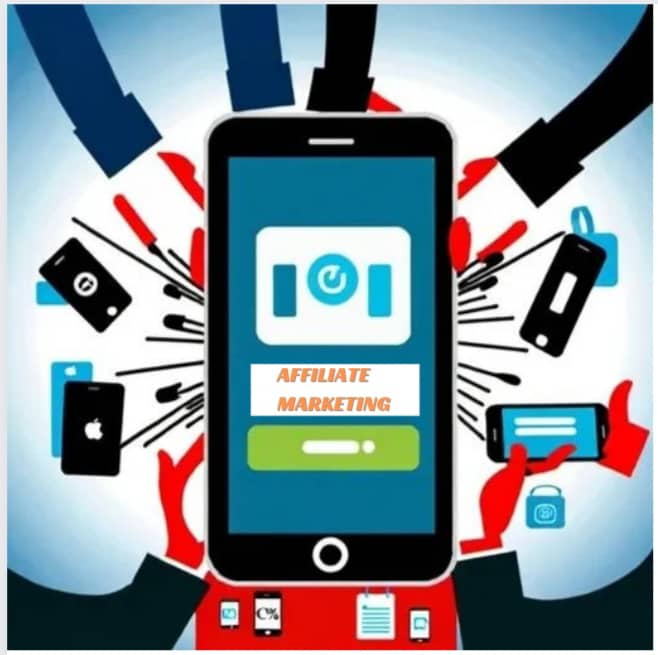In the digital age, mobile devices have revolutionized the way people access information, engage with content, and make purchasing decisions. As mobile usage continues to soar globally, afliate marketers are presented with unprecedented opportunities to reach and connect with consumers on-the-go. In this article, we’ll delve into the profound impact of mobile devices on afliate marketing and explore strategies for maximizing success in this rapidly evolving landscape.
Mobile Revolution:
The proliferation of smartphones and tablets has ushered in a new era of connectivity, convenience, and accessibility. With over 3.8 billion smartphone users worldwide, mobile devices have become indispensable tools for communication, entertainment, and commerce. This widespread adoption of mobile technology has fundamentally transformed consumer behavior and reshaped the digital marketing landscape.
Here’s a closer look at the transformative impact of the mobile revolution:
- Connectivity: Mobile devices have bridged the gap between individuals and the digital realm, enabling seamless connectivity on-the-go. With features like instant messaging, social media, and video calls, smartphones have revolutionized communication, allowing people to stay connected with friends, family, and colleagues anytime, anywhere.
- Convenience: The portability and versatility of mobile devices ofer unparalleled convenience to users. Whether checking emails during a commute, streaming music at the gym, or browsing social media in line at the grocery store, smartphones have become indispensable companions in our daily lives, providing instant access to information and entertainment.
- Accessibility: Mobile technology has democratized access to information and services, empowering individuals from all walks of life. With the proliferation of afordable smartphones and widespread internet connectivity, even users in remote or underserved areas can now access educational resources, healthcare services, and fnancial tools with just a few taps on their screens.
- Commerce: The rise of mobile commerce has revolutionized the way consumers shop and transact online. From browsing product catalogs to making secure payments, smartphones have turned into virtual shopping malls, enabling users to shop for goods and services with unprecedented ease and convenience. This shift towards mobile commerce has disrupted traditional retail models and created new opportunities for businesses to reach and engage customers.
- Behavioral Transformation: The widespread adoption of mobile technology has fundamentally altered consumer behavior and expectations. Today’s consumers expect seamless experiences across devices and channels, with mobile serving as the primary touchpoint for many interactions. This shift has forced marketers to adapt their strategies to meet the evolving needs and preferences of mobile-centric consumers.
Rise of Mobile Commerce:
The advent of mobile commerce, or m-commerce, has empowered consumers to shop anytime, anywhere, directly from their smartphones or tablets. From browsing product reviews to completing transactions, mobile devices ofer a seamless and streamlined shopping experience. As a result, afliate marketers have witnessed a signifcant shift in consumer preferences, with a growing portion of online purchases being made via mobile devices.
Mobile-Friendly Content:
To effectively engage mobile users, affiliate marketers must prioritize the creation of mobile-friendly content. This includes responsive website design, optimized email campaigns, and mobile-optimized landing pages. By ensuring that content is easily accessible and navigable on mobile devices, marketers can enhance the user experience and drive conversions.
Location-Based Marketing:
Mobile devices enable location-based marketing strategies that leverage geolocation data to deliver targeted promotions and ofers to consumers based on their physical location. Afliate marketers can capitalize on this trend by tailoring their campaigns to specifc geographic regions or local markets, thereby increasing relevance and efectiveness.
Social Media Infuence:
Social media platforms are predominantly accessed via mobile devices, making them invaluable channels for afliate marketing. With features such as shoppable posts and in-app purchases, social media platforms provide seamless integration between content consumption and product discovery. Afliate marketers can leverage social media to cultivate engaged communities, drive trafc to afliate links, and facilitate user-generated content.
Cross-Device Tracking:
Cross-device tracking technologies enable affiliate marketers to attribute conversions across multiple devices, allowing for more accurate measurement and optimization of campaigns. By gaining insights into the user’s journey across various devices, marketers can deliver personalized and targeted messaging to enhance the user experience and drive conversions.
The impact of mobile devices on afliate marketing cannot be overstated. From the rise of mobile commerce to the proliferation of mobile-friendly content and location-based marketing strategies, mobile devices have fundamentally reshaped the afliate marketing landscape. As consumers increasingly rely on mobile devices for online shopping and content consumption, afliate marketers must adapt their strategies to meet the evolving needs and preferences of mobile users. By embracing mobile-frst approaches and leveraging the unique capabilities of mobile devices, marketers can unlock new opportunities for growth and success in the dynamic world of afliate marketing.
Related Topics
The Future Of Afliate Marketing
The Power Of Email Marketing In Afliate Campaigns : Strategies For Success
Affiliate Marketing Master Class
Subscribe www.happyfacelimited.com
Learn Affiliate Marketing plus Free Travel programs
5
Become happy Face Travel Affiliate



